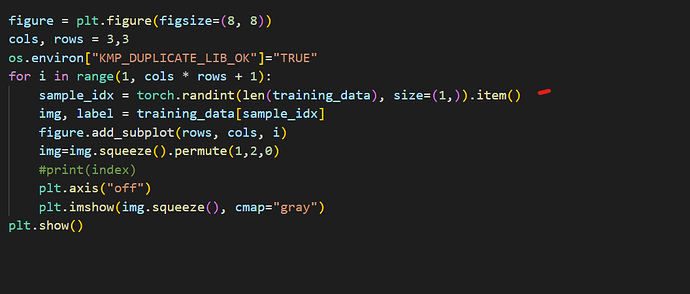I am trying to use and modify this RGP repository which uses very old version of pytorch
import torch
from torch.autograd import Variable
import torch.nn as nn
from GPy.core import Model, Parameterized, Param
import numpy as np
class Mean_var_rnn(nn.Module):
def __init__(self, p_input_dim, p_output_dim, p_hidden_dim, rnn_type='rnn', with_input_variance = True, bidirectional=False):
super(Mean_var_rnn, self).__init__()
if rnn_type == 'rnn':
self.rnn = nn.RNN(input_size=p_input_dim, hidden_size=p_hidden_dim, num_layers=1, bidirectional=bidirectional)
elif rnn_type == 'lstm':
self.rnn = nn.LSTM(input_size=p_input_dim, hidden_size=p_hidden_dim, num_layers=1, bidirectional=bidirectional)
elif rnn_type == 'gru':
self.rnn = nn.GRU(input_size=p_input_dim, hidden_size=p_hidden_dim, num_layers=1, bidirectional=bidirectional)
else:
raise ValueError("Unknow rnn type")
self.rnn_type = rnn_type
self.bidirectional=bidirectional
self.with_input_variance = with_input_variance
# in_features, out_features
self.dir_number = 1 if bidirectional==False else 2
self.linear_mean = nn.Linear(in_features=p_hidden_dim*self.dir_number, out_features=p_output_dim)
self.linear_var = nn.Linear(in_features=p_hidden_dim*self.dir_number, out_features=p_output_dim)
self.soft_plus = nn.Softplus()
def forward(self, mean_input, h_0, var_input=None, c_0=None):
"""
Input:
------------
c_0 - lstm init cell state
"""
if self.with_input_variance:
comb_input = torch.cat( (mean_input, var_input), dim=2 )
else:
comb_input = mean_input
if self.rnn_type=='lstm':
rnn_outputs,_ = self.rnn( comb_input, (h_0, c_0) ) # (seq_len, batch, hidden_size * num_directions)
else:
rnn_outputs,_ = self.rnn( comb_input, h_0) # (seq_len, batch, hidden_size * num_directions)
self.mean_out = self.linear_mean(rnn_outputs) #(N,∗,out_features)
self.var_out = self.soft_plus( self.linear_var(rnn_outputs) )
return self.mean_out, self.var_out
class Mean_var_multilayer(nn.Module):
def __init__(self, p_layer_num, p_input_dims, p_output_dims, p_hidden_dim, rnn_type='rnn', h_0_type='zero',
bidirectional=False):
"""
"""
super(Mean_var_multilayer, self).__init__()
assert p_layer_num == len(p_input_dims), "Layer num must be correct"
assert len(p_input_dims) == len(p_output_dims), " Dim lengths must match"
self.layer_num = p_layer_num
self.input_dims = [ (ss if i==0 else ss*2) for (i, ss) in enumerate(p_input_dims) ] # lower layers first
self.output_dims = p_output_dims #[ ss*2 for ss in p_output_dims] # lower layers first
self.hidden_dim = p_hidden_dim # asssume that hidden dim of all layers is equal
self.rnn_type = rnn_type
self.bidirectional=bidirectional
if h_0_type=='zero':
self.h_0 = np.zeros((p_hidden_dim,) )
else:
raise NotImplemented("Other initialization is not currently implemented")
if (rnn_type=='lstm'):
c_0_type = h_0_type
self.c_0 = np.zeros((p_hidden_dim,) )
self.layers = []
for l in range(self.layer_num): # layer 0 is observed, layer 1 is the next after observed etc.
# layers are created separately in order to make python references to the hidden layers outputs
with_input_variance = False if (l==0) else True # input variance
layer = Mean_var_rnn(self.input_dims[l], self.output_dims[l],
self.hidden_dim, rnn_type=rnn_type, with_input_variance = with_input_variance, bidirectional=bidirectional)
setattr(self, 'layer_' + str(l), layer)
self.layers.append(layer)
def forward(self, inp_l0):
h_0 = Variable( torch.from_numpy( np.broadcast_to(self.h_0, ( 2 if self.bidirectional else 1,inp_l0.size()[1],self.h_0.shape[0]) ) ).double() )
if self.rnn_type =='lstm':
c_0 = Variable( torch.from_numpy( np.broadcast_to(self.c_0, ( 2 if self.bidirectional else 1,inp_l0.size()[1],self.h_0.shape[0]) ) ).double() )
else:
c_0 = None
#import pdb; pdb.set_trace()
# prepare h_0 <-
self.out_means = []
self.out_vars = []
out_mean, out_var = inp_l0, None
for l in range(self.layer_num):
layer = self.layers[l]
out_mean, out_var = layer( out_mean, h_0, var_input=out_var, c_0=c_0)
# Store outputs
self.out_means.append(out_mean )
self.out_vars.append( out_var)
return self.out_mea
I made an example to see whether the classes in this script are working with the version of my pytorch
>>> from rnn_encoder import *
>>> tt = Mean_var_multilayer(2, [2,3], [3,4], 5, h_0_type='zero', rnn_type='rnn')
>>> tt(torch.randn([5,5,2]))
I got this error:
Traceback (most recent call last):
File "<stdin>", line 1, in <module>
File "/Users/opt/anaconda3/lib/python3.9/site-packages/torch/nn/modules/module.py", line 1110, in _call_impl
return forward_call(*input, **kwargs)
File "/Volumes//RGP/autoreg/rnn_encoder.py", line 144, in forward
out_mean, out_var = layer( out_mean, h_0, var_input=out_var, c_0=c_0)
File "/Users/opt/anaconda3/lib/python3.9/site-packages/torch/nn/modules/module.py", line 1110, in _call_impl
return forward_call(*input, **kwargs)
File "/Volumes/RGP/autoreg/rnn_encoder.py", line 71, in forward
rnn_outputs,_ = self.rnn( comb_input, h_0) # (seq_len, batch, hidden_size * num_directions)
File "/Users/opt/anaconda3/lib/python3.9/site-packages/torch/nn/modules/module.py", line 1110, in _call_impl
return forward_call(*input, **kwargs)
File "/Users/opt/anaconda3/lib/python3.9/site-packages/torch/nn/modules/rnn.py", line 471, in forward
result = _VF.rnn_tanh(input, hx, self._flat_weights, self.bias, self.num_layers,
RuntimeError: expected scalar type Float but found Double
Can someone specify what is the problem here, thanks.
